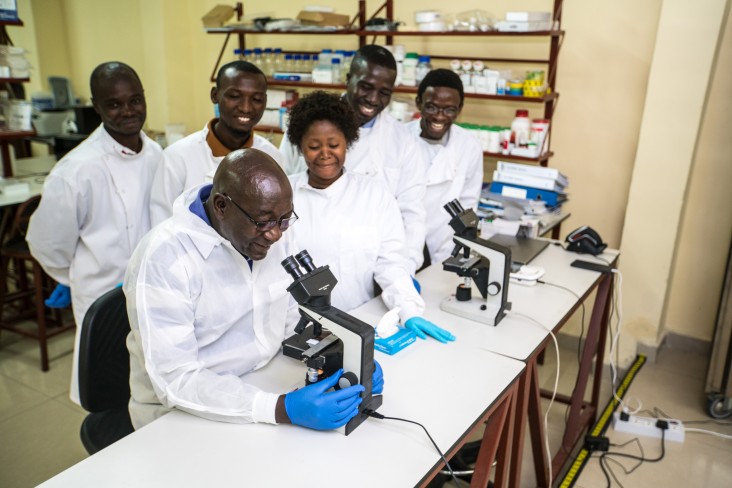
Agriculture and Food Security
Agriculture remains the strength of Sierra Leone’s economy and contributes about 50% of GDP. A weak agricultural production and the low level of commercialization caused by the 10-year civil war and the recent Ebola virus disease outbreak are the basis of extreme poverty in the country. The government’s post-Ebola recovery measures include restoring basic socio-economic services across the country, and lifting economic growth rates. USAID’s Feed the Future Program helps to address these problems by supporting the development of rice and fish farming systems to increase productivity and improve food and nutrition security and incomes in the country.
Democracy, Human Rights, and Governance
In 2012, with support from USAID and other partners, Sierra Leone conducted transparent and credible presidential elections that peacefully ceded leadership to the opposition party. However, limited accountability, transparency, participatory governance rule of law, and limited support and availability of funds to the local council has affected the active involvement of citizens in their development and doubts in meeting the sustainable development goals. USAID is working with the government of Sierra Leone to improve transparency, accountability, and the rule of law, and to protect human rights. In collaboration with the government of Sierra Leone and other partners, USAID programs help to ensure peaceful, free, and fair elections in 2018. USAID is also currently supporting the Women Empowered for Leadership and Development (WELD) project that aims at reducing the significant ongoing barriers to women and girls’ participation in decision-making at the household, community and national levels.
Global Health
Health services in Sierra Leone, already fragile, were overwhelmed by the Ebola outbreak in 2014 and 2015. People stopped visiting health clinics, immunization rates dropped dramatically, fewer women gave birth at facilities, and stock-outs of medicines and supplies slowed the delivery of effective health care. The outbreak exhausted the ability of the health services to respond to other infectious diseases, leading to measles outbreaks, and to treatment disruptions for malaria and TB. Many health workers died caring for the sick, exacerbating skill shortages in a country that had few trained health personnel to begin with. To help the country recover, USAID is working closely with the Government of Sierra Leone and other donors to ensure that basic health services are accessible to those most in need and health systems are prepared to respond adequately to future public health crises. USAID is focused on targeting these areas by adapting strategies that strengthen national capacity and build resilience. Additionally, in collaboration with partners, USAID works to detect viruses with pandemic potential, improve laboratory capacity to support surveillance, respond in an appropriate and timely manner, strengthen national and local response capacities, and educate at-risk populations on how to prevent exposure to these dangerous pathogens.








Comment
Make a general inquiry or suggest an improvement.